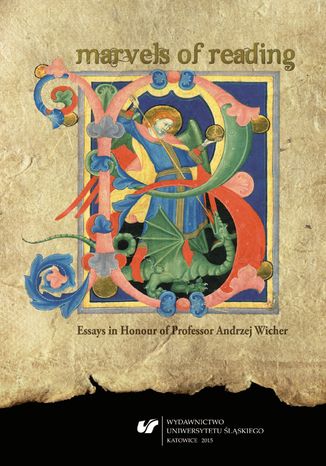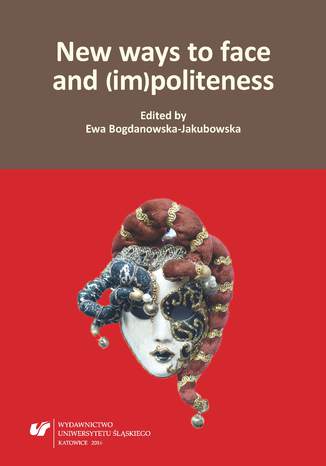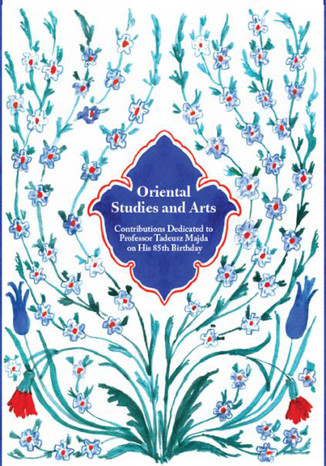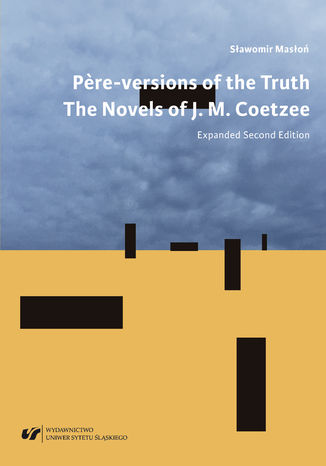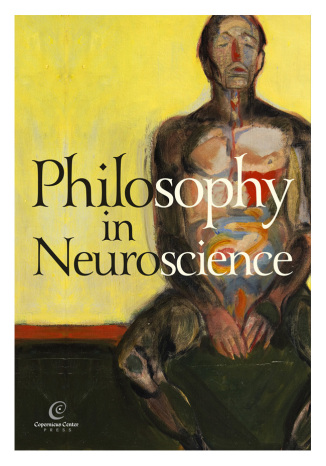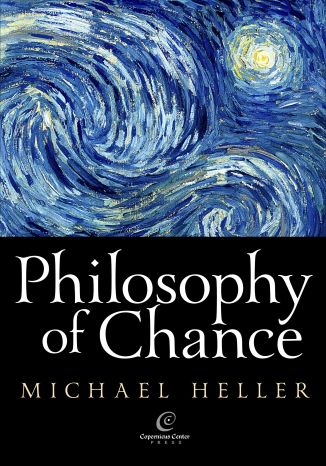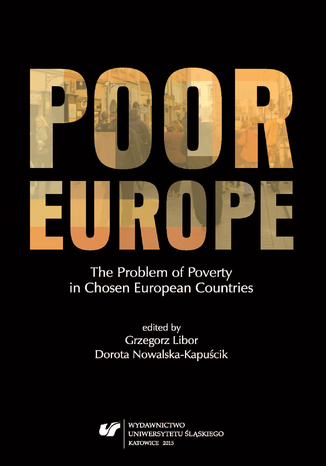Categories
Ebooks
-
Business and economy
- Bitcoin
- Businesswoman
- Coaching
- Controlling
- E-business
- Economy
- Finances
- Stocks and investments
- Personal competence
- Computer in the office
- Communication and negotiation
- Small company
- Marketing
- Motivation
- Multimedia trainings
- Real estate
- Persuasion and NLP
- Taxes
- Social policy
- Guides
- Presentations
- Leadership
- Public Relation
- Reports, analyses
- Secret
- Social Media
- Sales
- Start-up
- Your career
- Management
- Project management
- Human Resources
-
For children
-
For youth
-
Education
-
Encyclopedias, dictionaries
-
E-press
- Architektura i wnętrza
- Health and Safety
- Biznes i Ekonomia
- Home and garden
- E-business
- Ekonomia i finanse
- Esoterecism
- Finances
- Personal finance
- Business
- Photography
- Computer science
- HR & Payroll
- For women
- Computers, Excel
- Accounts
- Culture and literature
- Scientific and academic
- Environmental protection
- Opinion-forming
- Education
- Taxes
- Travelling
- Psychology
- Religion
- Agriculture
- Book and press market
- Transport and Spedition
- Healthand beauty
-
History
-
Computer science
- Office applications
- Data bases
- Bioinformatics
- IT business
- CAD/CAM
- Digital Lifestyle
- DTP
- Electronics
- Digital photography
- Computer graphics
- Games
- Hacking
- Hardware
- IT w ekonomii
- Scientific software package
- School textbooks
- Computer basics
- Programming
- Mobile programming
- Internet servers
- Computer networks
- Start-up
- Operational systems
- Artificial intelligence
- Technology for children
- Webmastering
-
Other
-
Foreign languages
-
Culture and art
-
School reading books
-
Literature
- Antology
- Ballade
- Biographies and autobiographies
- For adults
- Dramas
- Diaries, memoirs, letters
- Epic, epopee
- Essay
- Fantasy and science fiction
- Feuilletons
- Work of fiction
- Humour and satire
- Other
- Classical
- Crime fiction
- Non-fiction
- Fiction
- Mity i legendy
- Nobelists
- Novellas
- Moral
- Okultyzm i magia
- Short stories
- Memoirs
- Travelling
- Narrative poetry
- Poetry
- Politics
- Popular science
- Novel
- Historical novel
- Prose
- Adventure
- Journalism, publicism
- Reportage novels
- Romans i literatura obyczajowa
- Sensational
- Thriller, Horror
- Interviews and memoirs
-
Natural sciences
-
Social sciences
-
School textbooks
-
Popular science and academic
- Archeology
- Bibliotekoznawstwo
- Cinema studies
- Philology
- Polish philology
- Philosophy
- Finanse i bankowość
- Geography
- Economy
- Trade. World economy
- History and archeology
- History of art and architecture
- Cultural studies
- Linguistics
- Literary studies
- Logistics
- Maths
- Medicine
- Humanities
- Pedagogy
- Educational aids
- Popular science
- Other
- Psychology
- Sociology
- Theatre studies
- Theology
- Economic theories and teachings
- Transport i spedycja
- Physical education
- Zarządzanie i marketing
-
Guides
-
Game guides
-
Professional and specialist guides
-
Law
- Health and Safety
- History
- Road Code. Driving license
- Law studies
- Healthcare
- General. Compendium of knowledge
- Academic textbooks
- Other
- Construction and local law
- Civil law
- Financial law
- Economic law
- Economic and trade law
- Criminal law
- Criminal law. Criminal offenses. Criminology
- International law
- International law
- Health care law
- Educational law
- Tax law
- Labor and social security law
- Public, constitutional and administrative law
- Family and Guardianship Code
- agricultural law
- Social law, labour law
- European Union law
- Industry
- Agricultural and environmental
- Dictionaries and encyclopedia
- Public procurement
- Management
-
Tourist guides and travel
- Africa
- Albums
- Southern America
- North and Central America
- Australia, New Zealand, Oceania
- Austria
- Asia
- Balkans
- Middle East
- Bulgary
- China
- Croatia
- The Czech Republic
- Denmark
- Egipt
- Estonia
- Europe
- France
- Mountains
- Greece
- Spain
- Holand
- Iceland
- Lithuania
- Latvia
- Mapy, Plany miast, Atlasy
- Mini travel guides
- Germany
- Norway
- Active travelling
- Poland
- Portugal
- Other
- Przewodniki po hotelach i restauracjach
- Russia
- Romania
- Slovakia
- Slovenia
- Switzerland
- Sweden
- World
- Turkey
- Ukraine
- Hungary
- Great Britain
- Italy
-
Psychology
- Philosophy of life
- Kompetencje psychospołeczne
- Interpersonal communication
- Mindfulness
- General
- Persuasion and NLP
- Academic psychology
- Psychology of soul and mind
- Work psychology
- Relacje i związki
- Parenting and children psychology
- Problem solving
- Intellectual growth
- Secret
- Sexapeal
- Seduction
- Appearance and image
- Philosophy of life
-
Religion
-
Sport, fitness, diets
-
Technology and mechanics
Audiobooks
-
Business and economy
- Bitcoin
- Businesswoman
- Coaching
- Controlling
- E-business
- Economy
- Finances
- Stocks and investments
- Personal competence
- Communication and negotiation
- Small company
- Marketing
- Motivation
- Real estate
- Persuasion and NLP
- Taxes
- Social policy
- Guides
- Presentations
- Leadership
- Public Relation
- Secret
- Social Media
- Sales
- Start-up
- Your career
- Management
- Project management
- Human Resources
-
For children
-
For youth
-
Education
-
Encyclopedias, dictionaries
-
E-press
-
History
-
Computer science
-
Other
-
Foreign languages
-
Culture and art
-
School reading books
-
Literature
- Antology
- Ballade
- Biographies and autobiographies
- For adults
- Dramas
- Diaries, memoirs, letters
- Epic, epopee
- Essay
- Fantasy and science fiction
- Feuilletons
- Work of fiction
- Humour and satire
- Other
- Classical
- Crime fiction
- Non-fiction
- Fiction
- Mity i legendy
- Nobelists
- Novellas
- Moral
- Okultyzm i magia
- Short stories
- Memoirs
- Travelling
- Poetry
- Politics
- Popular science
- Novel
- Historical novel
- Prose
- Adventure
- Journalism, publicism
- Reportage novels
- Romans i literatura obyczajowa
- Sensational
- Thriller, Horror
- Interviews and memoirs
-
Natural sciences
-
Social sciences
-
Popular science and academic
-
Guides
-
Professional and specialist guides
-
Law
-
Tourist guides and travel
-
Psychology
- Philosophy of life
- Interpersonal communication
- Mindfulness
- General
- Persuasion and NLP
- Academic psychology
- Psychology of soul and mind
- Work psychology
- Relacje i związki
- Parenting and children psychology
- Problem solving
- Intellectual growth
- Secret
- Sexapeal
- Seduction
- Appearance and image
- Philosophy of life
-
Religion
-
Sport, fitness, diets
-
Technology and mechanics
Videocourses
-
Data bases
-
Big Data
-
Biznes, ekonomia i marketing
-
Cybersecurity
-
Data Science
-
DevOps
-
For children
-
Electronics
-
Graphics/Video/CAX
-
Games
-
Microsoft Office
-
Development tools
-
Programming
-
Personal growth
-
Computer networks
-
Operational systems
-
Software testing
-
Mobile devices
-
UX/UI
-
Web development
-
Management
Podcasts
- Ebooks
- Obcojęzyczne
- Język angielski
Język angielski
Kate works in a successful company as a fashion designer. She has been dating Brian for quite a while now yet suddenly she notices Steve, her colleague from work. Is true love possible in the world of show-business? Will she find the one and who is going to satisfy her desire for passion in the end? Some say that if you strongly believe, anything can happen. Angela Barther was born in 1984 in Kiev, Ukraine. In 1993 her family moved to Poland and then to Croatia, where she’s been living since then. She is a happy mother and wife. She runs a guesthouse on the coast of Croatia. Her passion is travelling, writing and photography. She often visits her grandparents in Poland.
Marvels of Reading. Essays in Honour of Professor Andrzej Wicher
red. Rafał Borysławski, Łukasz Neubauer, Anna Czarnowus
Marvels of Reading. Essays in Honour of Profesor Andrzej Wicher jest tomem esejów napisanych w większości w języku angielskim i honorującym sześćdziesięciolecie urodzin profesora Andrzeja Wichra, jednego z czołowych mediewistów i szekspirologów polskich. Tom składa się z jedenastu tekstów autorstwa uznanych polskich badaczy literatury, kultury i filozofii krajów anglojęzycznych, przyjaciół i dawnych uczniów Profesora, a tematyka tekstów obraca się wokół zainteresowań badawczych jubilata: studiów nad literaturą starogermańską, staroangielską, średnioangielską, Rajem utraconym J. Miltona, poezją G. M. Hopkinsa, filozofią melancholii, strukturą baśni, a także tłumaczeniem średnioangielskiego romansu rycerskiego. Tom zawiera w sobie następujące artykuły: “Margery Kempe’s Roman (Purgatorial) Holiday, or on Penance and Pleasure in Medieval Journeys” (Liliana Sikorska); “Magic and Religion in the Prose Merlin” (Bartłomiej Błaszkiewicz); “All That is Wrought is not Gold: Locating Wealth in Old English Gnomic Texts” (Rafał Borysławski); “The Character of Iêsu Krist in the Old Saxon Gospel Harmony The Hêliand as a Dramatic Cultural Synthesis Combining Elements of Deep Christian Piety and the Germanic Code of Heroic Honour” (Łukasz Neubauer); “’Margaret, are you grieving over Goldengrove unleaving?’: ‘Spring and Fall’ in the Poetic Thoughts of Gerard Manley Hopkins (and Charles Taylor’s Philosophy)” (Ewa Borkowska); “Ethnically Different Mothers-in-law in Chaucer’s Man of Law’s Tale and Its 2003 BBC Adaptation” (Anna Czarnowus); “Jacques and the Politics of Melancholia” (Tadeusz Sławek); “Death and the Hero – Paradise Lost and the Problem of Theomachia” (Maria Błaszkiewicz); “A Fairy Tale in Focus: Ecstatic Focalisations in A Christmas Carol” (Jacek Mydla); „Czytanie cudów w Panu Gawenie i Zielonym Rycerzu i Opowieści Franklina” (Barbara Kowalik); “More Motivated Malignity? The Ominous Agenda of the Green Knight in Andrzej Wicher’s Translation of Sir Gawain and the Green Knight” (Piotr Spyra). Praca jest adresowana do filologów angielskich, badaczy literackiej kultury krajów anglosaskich, a także studentów filologii angielskiej.
New ways to face and (im)politeness
red. Ewa Bogdanowska-Jakubowska
Teksty zawarte w tym zbiorze stanowią wkład w dyskusję na temat pojęcia twarzy, czynności twarzy oraz (nie)uprzejmości. Tom składa się z czterech części, każda omawia pojęcie twarzy i kwestie z nią związane z różnych perspektyw, oraz w różnych kulturach i różnych językach. Część pierwsza, Face and (im)politeness – theoretical issues, stanowi próbę redefinicji twarzy i jej związku z uprzejmością (Maria Sifianou), oraz analizuje kontekst jako czynnik mający istotny wpływ na twarz jednostki (Ewa Bogdanowska-Jakubowska). W części drugiej, Face and politeness in a cross-cultural and an intercultural perspective, mowa o włoskim pojęciu figura (Gudrun Held), wpływie komplementów na twarz w komunikacji międzykulturowej w środowisku akademickim (Marzieh Bashirpour and Imtiaz Hasnain), oraz o wyrażaniu opinii w rozmowach Polaków z Irlandczykami (Weronika Gąsior). Na część trzecią, Face, politeness and social norms, składają się trzy teksty: pierszy poświęcony roli zdrobnień w języku polskim (Paulina Biały), drugi – hinduskiej uprzejmości, trzeci – roli harmonii oraz pojęcia omoiyari w komunikacji w kulturze japońskiej (Maria Spiechowicz). Część czwarta, Face in different discourses, poświęcona jest twarzy w różnych dyskursach: tekstach Starego Testamentu (Marcin Kuczok), artykułach prasowych o tematyce politycznej (Yasuhisa Watanabe), oraz w dyskursie profesjonalnych tłumaczy ustnych (Ewa Bogdanowska-Jakubowska).
Oriental Studies and Arts. Contributions Dedicated to Professor Tadeusz Majda on His 85th Birthday
This volume is respectfully dedicated to Professor Tadeusz Majda, a renowned scholar in the fields of Oriental Studies and Art History. His numerous publications attest to his preeminent scholarly standing. But it is not the high number of his books and articles that alone mark him as a true teacher and a man of knowledge. It is the position he holds among his learned colleagues; the intense interest in his works shown by his disciples and students; the respect that he has earned among the public; and his values, wisdom, and gentle sense of humour that have all made him a true scholar, one to be followed. And of course there is his admirable elegance and charm. The scholarly fields represented by Professor Majda, Oriental Studies with a special focus on Turkology and the history of Oriental Art — mainly the art of the Middle East — are disciplines which require skills in multiple languages, a knowledge of history, a love of literature, a taste for the arts, an interest in Asia and many other traits and qualities, all of which have been acquired by Professor Majda. (from Preface by Agata Bareja-Starzyńska)
"Père"-versions of the Truth: The Novels of J. M. Coetzee. Wyd. 2 rozszerzone
Książka stawia sobie za zadanie ujęcie twórczości powieściowej J.M. Coetzeego od innej strony, niż większość krytyków ma w zwyczaju. Zwykłą praktyką, do której zresztą pisarstwo to zachęca, jest jego ogląd z pozycji „humanistycznej”, krytykującej nadużycia kolonializmu i konfrontującej przemoc z problemami egzystencjalnymi Człowieka na drodze do Prawdy i samorealizacji. Mimo że w dzisiejszym świecie autorytet uniwersaliów, takich jak Człowiek i Prawda, został mocno nadszarpnięty, gdyż może być postrzegany jako zawsze służący czyimś interesom, wydaje się, że Coetzee stworzył na swój użytek metodę pisarską, w której podstawowe cechy powieści humanistycznej mogą być zachowane, a która jednocześnie stara się bronić przed zarzutami uwikłania w grę przemocy i interesów. By pokazać polityczne, narracyjne i egzystencjalne konsekwencje postaw przyjętych przez bohaterów tego rodzaju uwspółcześnionej wersji powieści humanistycznej, w książce poddano analizie siedem powieści Coetzeego, a zawarte w nich przesłanki dyskursu humanistycznego zostały skonfrontowane z wybranymi koncepcjami teorii psychoanalitycznej, w szczególności Jacques’a Lacana, oraz ich polityczną aplikacją dokonywaną przez Slavoja Žižka. Drugie wydanie książki zostało wzbogacone o rozdział omawiający trzy pseudoautobiograficzne powieści Coetzeego oraz rozdział poddający analizie jego Żywoty zwierząt, rodzaj metafikcji poświęconej prawom zwierząt.
Bartosz Brożek, Jerzy Vetulani, Bram Heerebout, Marcin Siwek, ...
A collection of essays dealing with the fundamental issues in neuroscience from methodological and philosophical perspectives. The Reader will learn about the methodological difficulties connected with the use of neuroscientific experiments in philosophical argumentation and about the nature of scientific explanation in neuroscience. In addition, the collection includes case studies of several issues lying at the intersection of neuroscience and philosophy such as: theory of mind, self-consciousness, self-deception, depression and morality.
Philosophy of Chance. A cosmic fugue with a prelude and a coda
A new book by the 2008 Templeton Prize laureate Michael Heller in which the problems of chance and probability are seen in light of the advancements of physics and biology. The Author's claim is that chance finds its place within the structure of the universe and cosmic evolution. Heller's insightful remarks may be considered a critique of both Dawkins' 'blind watchmaker' approach and Dembski's 'intelligent design' perspective.
Poor Europe. The Problem of Poverty in Chosen European Countries
Głównym celem, jaki przyświecał autorom publikacji Poor Europe. The Problem of Poverty in Chosen European Countries było porównanie jednej z ważniejszych obecnie kwestii społecznych – kwestii ubóstwa – w poszczególnych krajach europejskich. Nie tylko na polskim, ale także zagranicznym rynku wydawniczym brak jest niewątpliwie tego typu pozycji, która w jednym miejscu gromadziłaby nie tylko teoretyczną wiedzę, ale również – a może przede wszystkim – refleksję dotyczącą praktycznych działań mobilizujących środowiska naukowe, a także instytucje, organizacje pozarządowe i inne środowiska w walce z ubóstwem. Komparatystyczne walory tejże publikacji są zatem nie do przecenienia. Fakt, że publikacja ta przygotowana została w języku angielskim, a każde państwo omówione zostało przez wybitnych przedstawicieli nauki pochodzących z każdego z nich gwarantuje wysoki poziom przeprowadzonych i zaprezentowanych analiz. Problem ubóstwa w Europie zaprezentowano na przykładzie następujących państw: Belgii, Malty, Łotwy, Hiszpanii, Chorwacji, Finlandii, Bułgarii, Islandii, Szkocji, Walii, Polski, Szwajcarii, Słowenii oraz Anglii.


